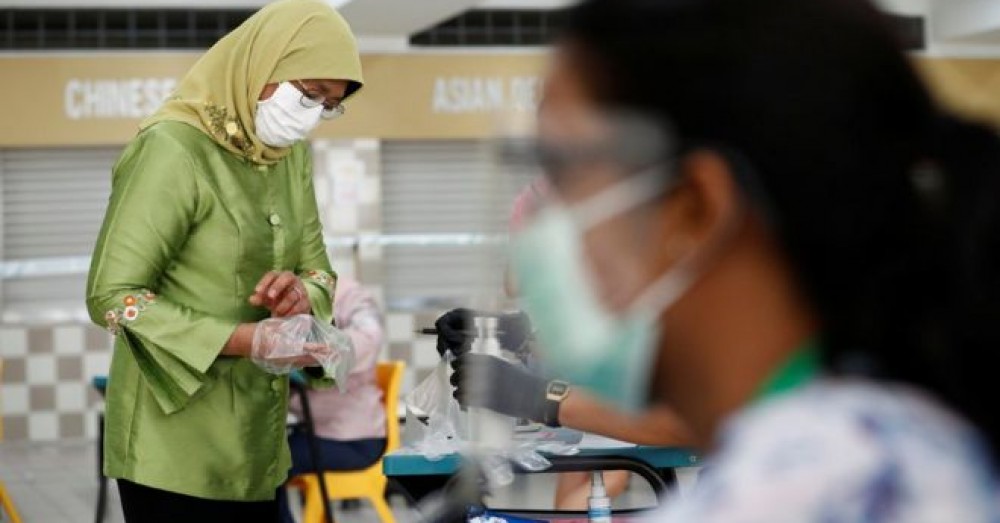Voting is under way in Singapore's general election, under the cloud of the coronavirus pandemic and its economic fallout.
The small city state is one of a handful of countries to hold a vote during the pandemic so far.
Strict safety measures are in place, with voters wearing gloves and masks and given timed voting slots.
Singapore has been one of the worst hit countries in the Asia-Pacific region, with more than 45,000 cases.
As large scale gatherings and events are deemed a high risk during the pandemic, only a few countries have gone ahead with national elections during the past months.
South Korea voted in April while Serbia went to the polls in late June. In both countries, voters returned the incumbent government to power.
Ruling party expected to return
Singapore has been ruled by the same party since independence - the People's Action Party (PAP) - and it is widely expected to retain power.
A PAP win would carry current Prime Minister Lee Hsien Loong to yet another term in office.
The son of country's founding father and long-time ruler Lee Kuan Yew, Mr Lee has been in office since 2004 - but has indicated the upcoming term would be his last.
The government's main contender is the Workers' Party, which says the decision to hold the vote during the pandemic was aimed at undercutting its campaigning efforts.
As the overall outcome is little in doubt, Singapore elections are usually watched for even small shifts in the PAP's performance.
This time round, the main issues seen to be on voters' minds are the government's handling of the pandemic and the looming economic recession.
Singapore had initially been praised for keeping the virus in check until clusters in its migrant population dramatically drove up infection numbers.
In terms of per capita cases, Singapore now ranks among the world's worst affected countries although the death rate is low and almost all cases originate from within the foreign worker community living in dormitories.
After weeks of strict lockdown, measures have been gradually eased since June and there's only been a small uptick in infections among the local population.
Social distancing rules remain in place and wearing face masks is compulsory in public.
For the election process, this means the 2.65 million voters have to sanitise their hands and wear disposable gloves before receiving their ballot paper and proceeding to vote.
People have been given two-hour slots where they are recommended to vote to avoid crowding.
Mobile polling teams are also taking ballot boxes to citizens who have recently returned from overseas and are in hotel quarantine.
Share This Post















